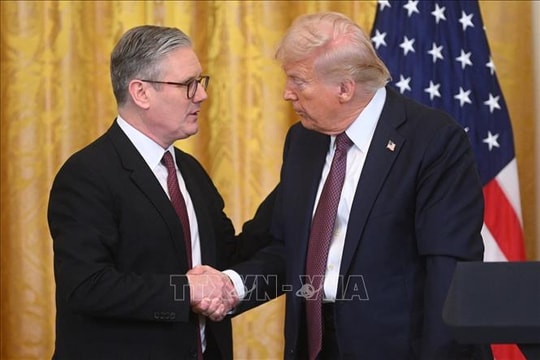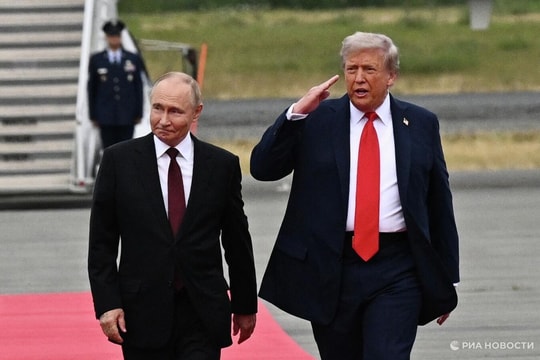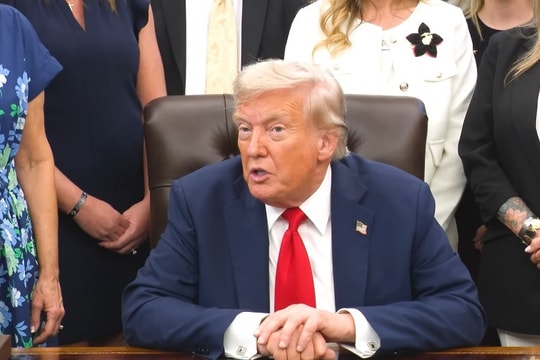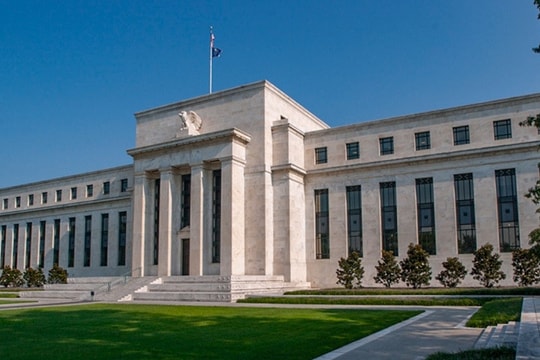What message is hidden behind the US-Korea summit?
(Baonghean.vn) - According to a professor at Tufts University (USA), US-Korea relations are being redefined by geopolitical concerns at Korea's doorstep.
 |
US President Joe Biden and South Korean President Yoon Suk Yeol shake hands during a press conference in the White House Rose Garden on April 26. Photo: AP |
South Korean President Yoon Suk-yeol met with his US counterpart Joe Biden at the White House on April 26, in a rare state visit as the two countries seek to confront shared concerns.
This event is only the second state visit to the US by a foreign head of state during Mr. Biden’s term, following a visit by French President Emmanuel Macron in late 2022. The White House’s awarding of this honor to Mr. Yoon, who has just “wet his feet” in the political world before taking office in May 2022, may come as a surprise to some foreign policy observers.
Seoul does not have the influence in international politics that some other US allies do. It is an important economic partner, but so are Japan, Germany, Canada and Mexico – all of which rank above South Korea in terms of overall US trade.
So why did the US welcome the South Korean leader so solemnly? According to Professor Sung-Yoon Lee - a scholar specializing in Korean political history and US-East Asia relations at Tufts University, the answer to the above question can be determined in three locations on the world map, corresponding to the three governments in Pyongyang, Beijing and Moscow.
The White House meeting may be nominally seen as a strengthening of ties between Seoul and Washington, but in reality they will want to send a message of unity in the face of what they see as threats from North Korea, China and Russia.
 |
The two leaders attended a military parade in Washington on April 26. Photo: AP |
Friendship is forged in war
The relationship between Washington and Seoul was established during the 1950-53 Korean War. For several decades, the alliance was also quite shaky, especially in the two decades after the 1953 armistice, a period when South Korea’s self-sufficient economy was almost entirely dependent on US aid.
But in the past two decades, South Korea has narrowed the gap, becoming a world leader in areas such as electronics, shipping, vehicles, weapons, and pop culture. The US-South Korea alliance has also developed on the basis of economic interests as well as strategic and diplomatic concerns.
Even the awkwardness surrounding recent reports alleging US spying on South Korea's presidential office is unlikely to dampen the expected display of friendship during this bilateral meeting.
After all, Mr. Biden and Mr. Yoon have more important matters to address. This state visit comes after a year in which North Korea launched nearly 100 missiles into the skies above and around the Korean Peninsula, Russia launched a special military operation in Ukraine, and China escalated its rhetoric on Taiwan. These are the issues that the U.S. and South Korean leaders will address when they meet.
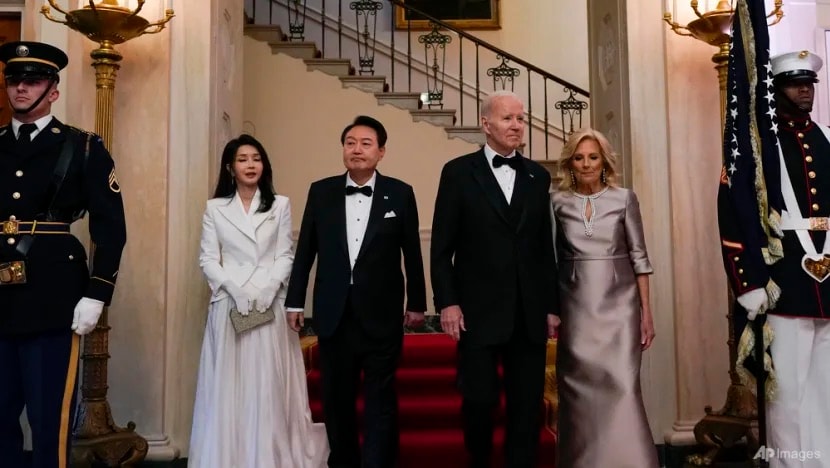 |
Mr. Yoon and his wife Kim Keon Hee and Mr. Biden and his wife Jill Biden pose for a photo at a dinner at the White House on April 26. Photo: AP |
North Korean missiles
For South Korea, the threat from Pyongyang to the North is very real. Mr. Biden is likely to emphasize the US commitment to South Korea's defense against a nuclear-armed North Korea.
But the threat is not limited to the Korean Peninsula. Pyongyang’s intercontinental ballistic missiles now have the capability to reach the continental United States. This development may have caught Washington’s attention, but it has another consequence: the existential threat facing South Korea is now an existential threat to the United States as well.
Growing anxiety in South Korea – where more than 70% of people now support a homegrown nuclear weapons program rather than relying on a powerful ally – means Mr. Yoon will want the United States to continue offering assurances that go beyond statements of “extended deterrence” and promises of an “ironclad” alliance.
North Korean leader Kim Jong-un told the world last week that he was preparing to launch a spy satellite into space and was stepping up ballistic missile testing, especially during Yoon’s visit to the United States. This was a reminder to Kim’s two main rivals that the leader always has the ability to make things difficult for them.
 |
Mr. Biden holds notes during a press conference with his South Korean counterpart in the Rose Garden. Photo: AP |
The Rise of China
However, the threat posed by North Korea is not the only security concern in East Asia for the US or South Korea. China’s rise as a force in the Indo-Pacific, and its perceived rival to Washington and Seoul in terms of economic and strategic interests, is another topic likely to be discussed at the White House meeting.
In fact, a few days before leaving for the US, Mr. Yoon mentioned the Taiwan issue in an interview with Reuters news agency, saying that it was a “global issue,” implicitly reaffirming Mr. Biden’s statement in May 2022 about the importance of maintaining “peace and stability in the Taiwan Strait as an important factor in security and prosperity in the Indo-Pacific region.”
The visit also comes as South Korea has made moves to repair relations with Japan. In March, Mr. Yoon met with Japanese Prime Minister Fumio Kishida in the first official bilateral meeting between the two leaders in 12 years. The more friendly atmosphere between Tokyo and Seoul is clearly beneficial to Washington's plan to create a three-way alliance structure to counter the influence of major powers in the region.
Biden will also hope to further isolate China through economic measures, observers say. During his visit to the US, Yoon will travel to Boston, where he will highlight the importance of cooperation in the biotechnology and high-tech industries. The visit comes at a time when South Korea’s leading chipmakers, Samsung and SK Hynix, are facing pressure from the US to cut their semiconductor business in China.
Mr. Yoon will seek to promote joint investment between the United States and South Korea in the semiconductor sector to offset the impact from reduced sales to the Chinese market.
Ukraine "thirsty" for weapons
Next, the issue of the conflict in Ukraine is also likely to be mentioned.
In the past, South Korea has been largely parochial on security issues, which is understandable given the frequent flare-ups on the Korean Peninsula. Seoul has so far provided only economic and humanitarian aid to Ukraine, despite being the world’s eighth-largest arms exporter.
But Mr Yoon’s vision for South Korea is one of a “global pivot” that puts freedom, values and a rules-based international order at the heart of its foreign policy – and that leaves the door open to further intervention. If Mr Biden can quietly persuade his guest to commit to providing more arms and ammunition to Ukraine, it would be seen as a victory for both Mr Yoon’s vision and Mr Biden’s.
State visits are ceremonial in nature – and 2023 marks the 70th anniversary of the US-ROK alliance. But as strategic and economic concerns converge, the future relationship between the countries is being redefined by how the two allies simultaneously face geopolitical concerns on South Korea’s doorstep, in the wider region and the world beyond./.

